‘Artificial’ petrol shortage irks federal cabinet
PM Imran orders normal supply of fuel within 48-72 hours
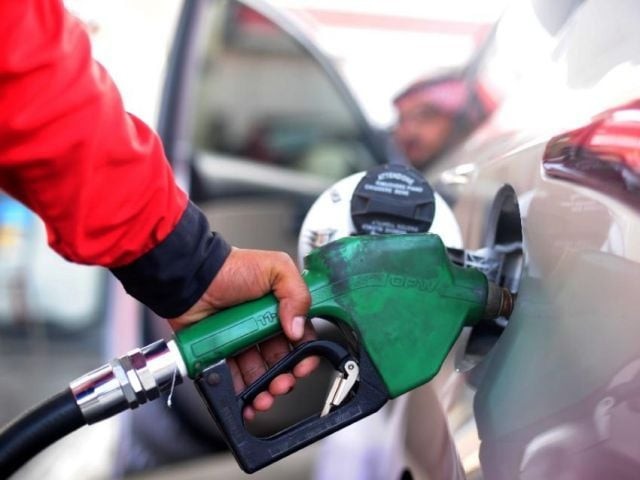
PM orders normal supply of fuel within 48-72 hours. PHOTO: FILE
Presiding over a meeting of the cabinet, the premier ordered strict action against those responsible for creating the “artificial” shortage.
He instructed the petroleum ministry and Ogra to ensure that every oil marketing company maintained a 21-day stock to meet its licence conditions.
Taking notice of the countrywide petrol shortage at filling stations, the government has already initiated an inquiry against OMCs for their alleged involvement in the current oil crisis and has constituted a committee headed by a representative of the Federal Investigation Agency.
Ogra has found six mega oil companies involved in the shortage and issued show-cause notices to them.
The cabinet noted that Ogra and the petroleum division had the legal authority to physically enter and inspect oil companies’ storage facilities.
It directed formation of joint raiding teams comprising representatives of the petroleum division, Ogra, FIA and district administrations to inspect petrol depots.
It was decided that anyone found involved in hoarding would face full force of law, including arrest.
In addition, the cabinet decided that any company found not maintaining the mandatory stocks and supply to its outlets would face punitive action including suspension and cancellation of its licence and imposition of heavy fines.
The energy ministry informed the cabinet that the total petrol supplies were 650,000 metric tonnes by June last year while supplies arranged for June 2020 stood at 850,000 metric tonnes.
While urging the public not to engage in panic buying, it was decided during the cabinet meeting that stocks that were being hoarded would be identified and made be available in the market.
Earlier, the government reduced the price of petrol for June on the recommendation of Ogra. However, soon after the decision was made, filling stations ran dry across the country.
Govt launches inquiry into oil crisis
The federal government had reduced the price of petrol by Rs7.06 per litre for the month of June in line with the dip in global crude oil prices caused by virus-induced lockdowns. Following the notification issued by the finance ministry, the price of petrol has come down from Rs81.58 to Rs74.52 per litre.
The Oil Companies Advisory Council, an independent organisation formed by the refineries, OMCs and a pipeline company, said in a statement that the current stock of petrol was continuously being replenished by the OMCs from supplies through local refineries’ production and regular arrival of vessels carrying imported petrol at the two ports – Karachi Port Trust (KPT) and Port Qasim.
It maintained that the current sales of petrol were exceptionally high, a growing by 50%, in the past few weeks because of the easing of the Covid-19 lockdown and that had caused the depletion of stocks).
It added that the sudden increase of 50% in consumption was being met by the industry through additional imports in June and July.
“While there are a few pockets of constrained supplies in some parts of the country, the petroleum division, Ogra, local refineries and OMCs are working round the clock to mitigate the situation.”
Sugar crisis inquiry report
The cabinet also gave the nod to the National Accountability Bureau and other federal institutions to take a seven-point “matrix” of actions against the individuals and companies that an inquiry commission had found were responsible for the sugar crisis in the country.
During the meeting, the premier said the issue of the sugar crisis would be taken to its logical conclusion.
The cabinet was informed that the commission had reviewed the subsidies worth Rs29 billion granted on the export of sugar from 2014 to 2019. The matter has been forwarded to NAB, which would also review the subsidies granted since 1985, especially during the 1990s.
According to a post-cabinet statement, apart from NAB, the FIA will investigate sales tax, income tax and benami transactions of 88 sugar mills that had not been investigated yet. Additionally, the Competition Commission of Pakistan has been tasked with investigating into the matter of sugar cartelisation.
The cabinet has directed the SBP to investigate waiver of loans to sugar mills, sale of mortgaged assets with banks and loan defaults within 90 days.
Cases of corporate fraud involving sugar mills have been referred to the FIA and the SECP. The FIA will also deal with export fraud and money laundering cases.
The matter of sugarcane prices and violation of relevant provincial laws has been referred to the anti-corruption departments of the provincial governments.
The prime minister also took notice of the increase in poultry prices. He directed the finance adviser to convene a meeting of the National Price Monitoring Control Committee and submit a detailed report on the matter to the cabinet.
To improve the performance of government agencies and ensure timely implementation of decisions, the prime minister directed that the implementation of e-filing and e-tracking system of files in ministries should be expedited.
The cabinet considered in detail the decision of the Economic Coordination Committee to sack 9,000 employees of the Pakistan Steel Mills. It noted that the current government was working on an agenda of reforms.
The cabinet also noted that the entire burden of the PSM, a “dysfunctional institution” was borne by the people for years and there was a need to further the reform agenda in the national interest.
As per the cabinet agenda, Dr Ishrat Hussain presented his recommendations on how to ensure quality manpower in government institutions, especially the recruitment of qualified persons for the posts of heads of institutions, which were approved by the cabinet.
Special Assistant Shahzad Arbab gave a briefing on the system of improving the performance of government agencies, especially setting of targets and introducing performance contracts to achieve them.
The cabinet also approved the allocation of Sector F-12 and Sector G-12 for the Federal Government Employees Housing Authority. In this regard, approval was also given for acquisition of land in these sectors. Fifty per cent quota in the houses being constructed in these sectors will be allotted to federal employees, 25 percent to overseas Pakistanis and the remaining 25 percent to the public.
The cabinet stressed the need for not taking land from anyone without giving compensation. The cabinet was assured that multi-storied flats would be constructed in the same sector for the slum dwellers in G-12 and they would be provided shelter.
The cabinet also approved the formation of a committee comprising the Deputy Chairman Planning Commission, Secretary Aviation and Secretary Ministry of Industries and Production to inquire into the issue of the “sabotage” of the IRSA telemetry system, which was installed by WAPDA in 2002.
The committee will determine the nature and extent of the involvement of IRSA members or others in the sabotage of the telemetry system and the reasons for the mismanagement of the World Bank project. The committee will complete its work in 15 days and submit a report.

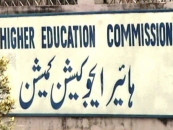

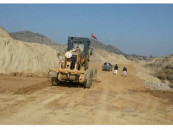
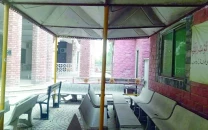
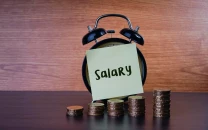













COMMENTS
Comments are moderated and generally will be posted if they are on-topic and not abusive.
For more information, please see our Comments FAQ